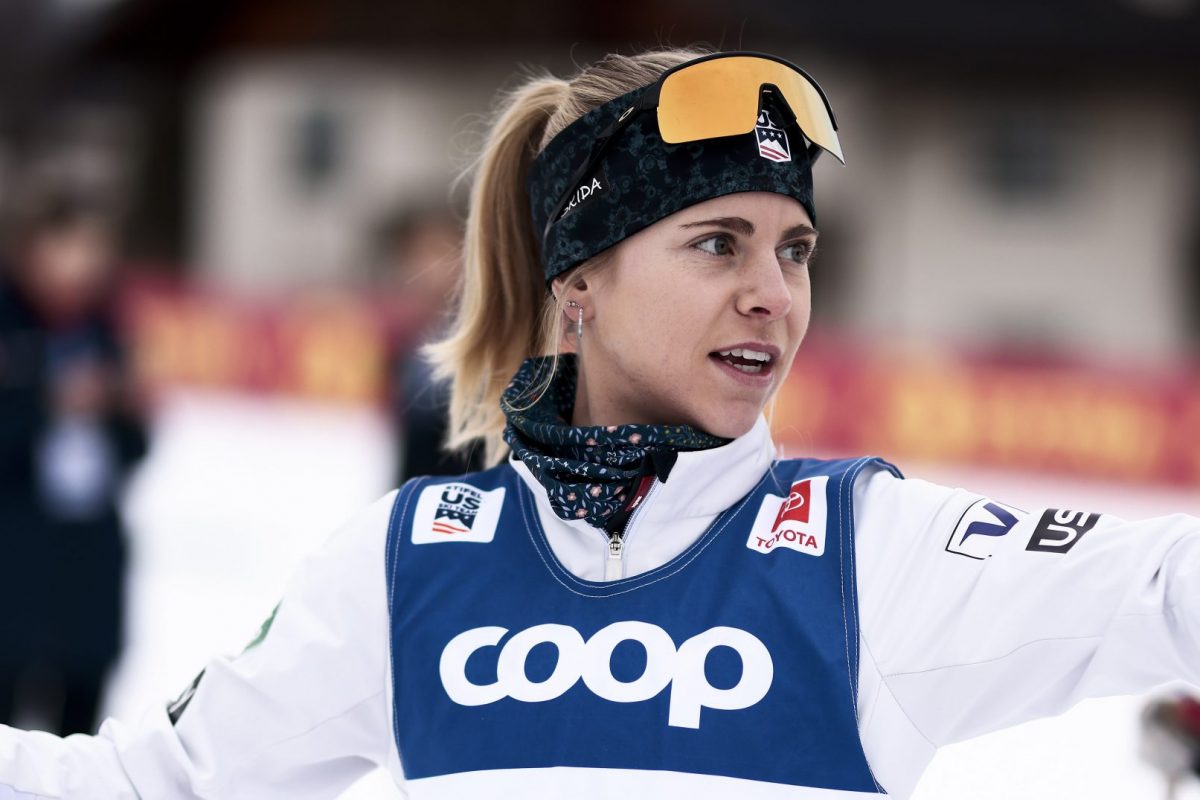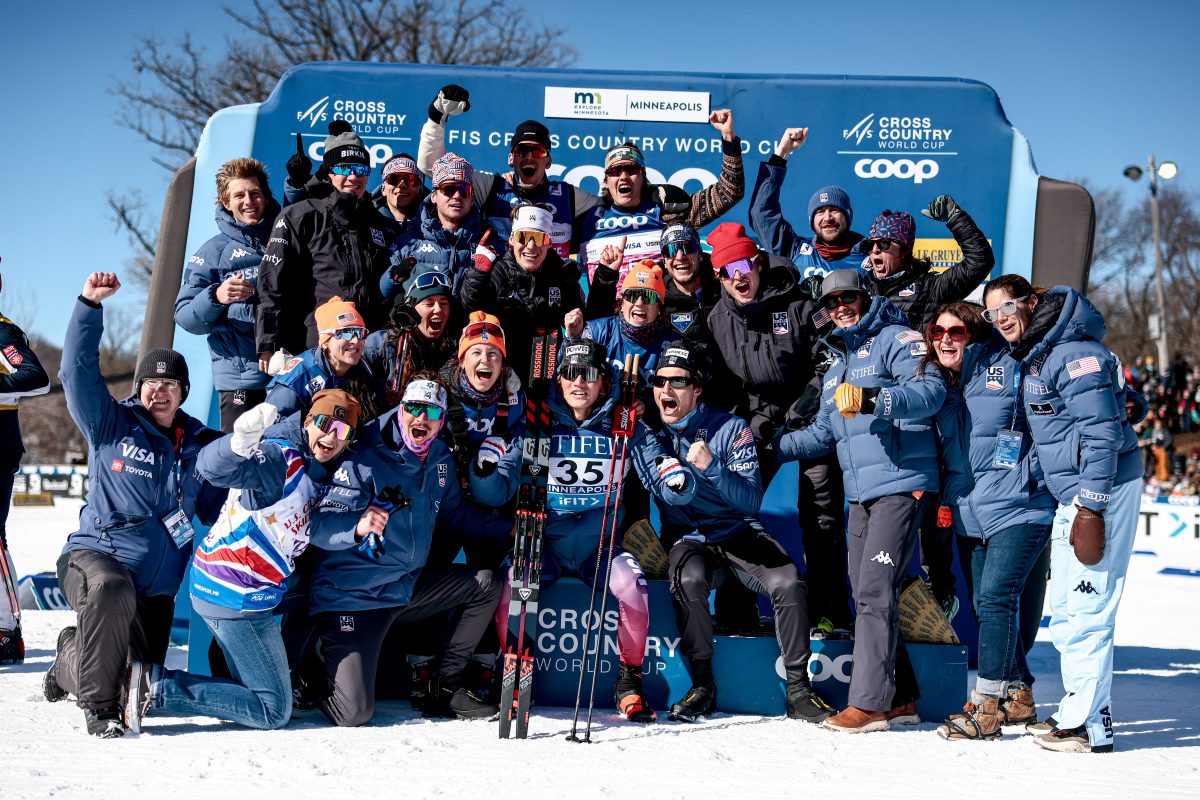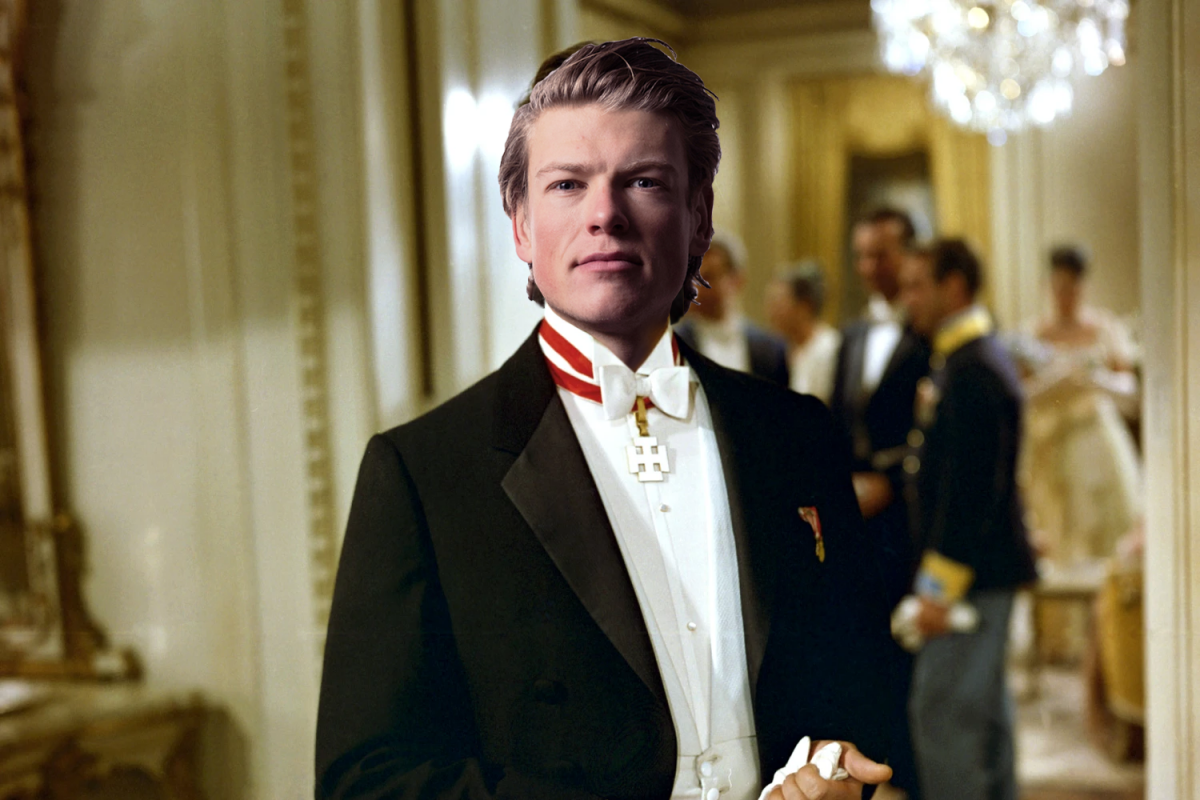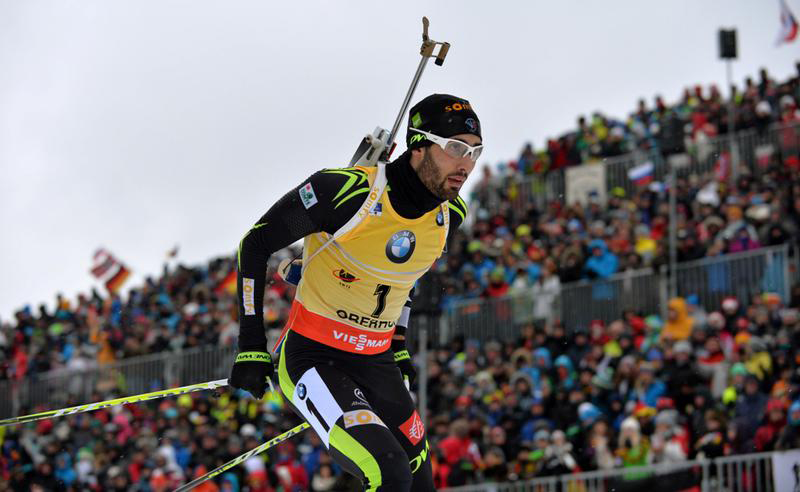
On Sunday, Martin Fourcade reminded the world that no one can touch him in the 15-kilometer mass start in Oberhof, Germany. Fourcade, of France, used a combination of quick skiing and exceptional shooting to make sure that no one could challenge his reign of the course.
Though he never posted the fastest course time on any of the five laps, Fourcade’s consistent skiing allowed him the luxury of slower shooting. Fourcade shot perfectly, and in fact was the only racer of the day to have less than three misses. He took first place by 13.1 seconds over Russia’s Anton Shipulin, who missed one shot in each stage, for a total of four misses.
Shipulin’s teammate, Dmitry Malyshko, was third (+30.7) with three penalties, Bulgaria’s Krasimir Anev missed the podium by just over a half a second, taking fourth (+31.4) with three misses, while Czech Michal Slesingr missed three as well to place fifth (+37.8).
Fourcade, the overall IBU World Cup leader, had a nearly 30-second lead heading into the final stage. However, upon arriving at the final stage, the wind picked up. Fourcade demonstrated exceptional patience, waiting at the range for the wind to die.
Of the 29 competitors final competitors, Fourcade’s fourth-stage range time ranked 28th; he spent over a minute and a half on the range. Though Shipulin, among several other competitors, came in while Fourcade was shooting and exited the range ahead of him, they missed shots and were forced to ski penalty loops. Fourcade went straight on to his final loop and the victory.
‘Mediocre’ and ‘Really Bad’ Days for Smith, Bailey
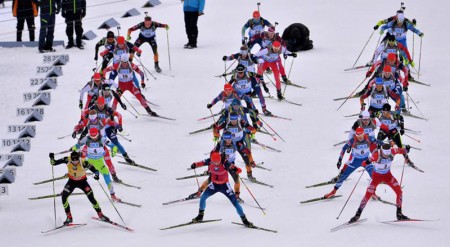
Two North Americans entered the race, Canadian Nathan Smith and American Lowell Bailey. American Tim Burke was slated to race, but withdrew in the morning due to illness.
“Unfortunately, I woke up this morning with a small head cold,” Burke wrote in an email. “I made a promise to myself not to race this year with any sickness. This year I am also only interested in fighting for top results and I don’t really care about the World Cup rankings. With my feeling today, I would have little chance at a top result and it would set me back for the next weeks.”
Neither Bailey nor Smith were happy with how their day turned out. Bailey had a particularly rough day, finishing last of 29 men with 10 penalties, 4:36 behind Fourcade.
In a US Biathlon Association press release, Bailey said, “It’s easy to start looking for answers when you have a bad day. You start to look back at your training and think, ‘Did I make the right choice there? Should I have taken more rest here? More shooting there?’ But the fact of the matter is that I have no excuses. Sometimes you just have a bad day. Sometimes it’s a really bad day!”
Smith, who tied Sweden’s Frederik Lindström in 20th (+1:51.4) with six misses, called his race “mediocre.”
“I think my skiing was pretty strong but poor shooting at the beginning and end of the race put me out of contention for a top 8 result,” Smith wrote in an email. “I will definitely spend some time to think of strategies for the last shooting. It’s been a bit of a weakness this season so far and I would like to turn it into a strength.”
Due to a lack of snow at the venue, the first “lap” was in fact two 2.5 k loops to the first shooting stage. Without a shooting stage to break up the pack, many of the skiers initially stayed together.
“Everyone was together the entire time and the pace was somewhat leisurely,” Smith wrote. “It was an odd feeling to ski like that for so long. It was [how I would imagine] a cross country race, until after the first trip to the range, when the real racing started.”
In an email, Bailey wrote that he was confident in his training, adding that he always tries to “salvage any redeeming qualities from a race, even if it’s going poorly.”
“It was definitely a bad day,” he wrote, “but I jut tried to stay focused through the end and work on ski technique. The best and worst part of biathlon is that it is a volatile sport; one day you are on top of the world and everything seems easy, the next day nothing goes right. It’s just a matter of keeping things in perspective.
“Ruhpolding is up next and it’s a whole new set of races,” Bailey added.
— Chelsea Little contributed reporting.

